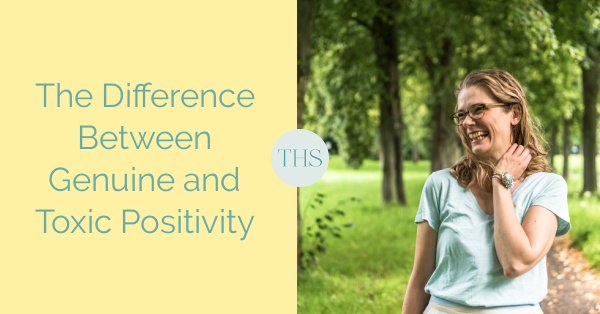Parenting with Chronic Illness: How to Take Care of Your Baby and Yourself

When’s the last time someone told you to “just be positive” after sharing your struggles?
There’s a tricky relationship between positive thinking, health and happiness. Over the past decade, experts have promoted positivity as a simple but highly effective tool to lead a happier and healthier life.
And rightfully so. Positivity has been linked to lower levels of stress, stronger immunity, better cardiovascular health, increased feelings of physical and emotional wellbeing, and even a longer lifespan. Cultivating positive feelings like joy, hope and inspiration also builds good mental habits such as attention, resilience and optimism, which in turn buffer the potential negative effects of stressful times.
But anyone’s who’s ever been seriously sick knows there’s another side to positive thinking and health.
Because the positivity culture puts a lot of responsibility on a person’s shoulders. If you can feel healthier and happier by thinking positively, the reverse surely must also be true: the reason you’re still not better is because you’re not positive enough. Thanks to ‘The Secret’ and it’s Law of Attraction, there’s even a popular belief that you just need to send the right thoughts out into the Universe and the Universe will answer your prayers.
Even if your problem is largely outside of your control, the underlying message seems to be, “If only you’d thinking positively/eat right/follow this program, then you wouldn’t feel sad and sick.”
This kind of toxic positivity completely overlooks the severity of some situations. Sure, if someone’s down over a ruined meal or failed work assignment, you can tell them to just cheer up. But when someone is diagnosed with chronic illness or lost a loved one, it’s normal to go through stages of grief, sometimes more than once. Clinical depression and anxiety are also medical conditions that cannot be cured by positive thinking and lifestyle changes alone.
In these cases, smilingly telling someone “don’t worry, you’ll get through it” or “think happy thoughts” doesn’t help – it hurts. Toxic positivity strips someone away of the validation they deserve and leaves them feeling ‘guilty’. Guilty for ‘contributing to their problems’, for ‘not being strong enough’ to get better by themselves. Instead of searching for ways to deal with the situation, people may start to doubt themselves, at a time when they need their confidence the most.
The thing is, most of the time those hollow phrases are actually well-meant advice. People often don’t know what to say, and they (we!) have a hard time really putting themselves and ourselves in someone else’s shoes. So we project our own somewhat similar situation onto others. “Oh, that time when I was ill, I just pushed the pain and all those negative thoughts away.”
But in our hurry to help our struggling friend, we stop listening to their story. Everyone has their own journey to go through. You can’t fast-forward to better times without going through the process of feeling overwhelmed, venting your emotions, organizing your thoughts and experimenting with different coping strategies.
If this toxic positivity isn’t the best way to help, what can you do or say to convey genuine optimism?
First, let’s get this clear:
You’re not to blame for everything that happens to you, and you’re not solely responsible for the solution. It’s ok to ask for help.
If you’re going through tough times and the emotional rollercoaster that comes along with it, here are some strategies to cope better and rebuild:

When a loved one shares their struggles with you, there are two important things to remember:
That’s why my number one advice is: swallow your instinctive response to give advice or offer tips, unless your friend specially asks for it.
Here are some ideas for what you can say instead of toxic positivity:
Basically, anything that validates your friend’s feelings and offers some comfort and support. With that in mind, you can easily put a truly positive spin to any well-meaning words.
Genuine optimism meets your loved one where they are, even if that’s overwhelmed, scared and pessimistic about the future. Toxic positivity, on the other hand, is often offered when the person listening does not know how to deal with the negative emotions their friend or family member experiences.
Has positivity ever had a negative effect on you? Which words would you rather have heard?
If you enjoyed reading this post, you might also like 33 Ways to Best Support Your Friend in Need and 34 Ideas to Cultivate Joy in Your Chronic Life.